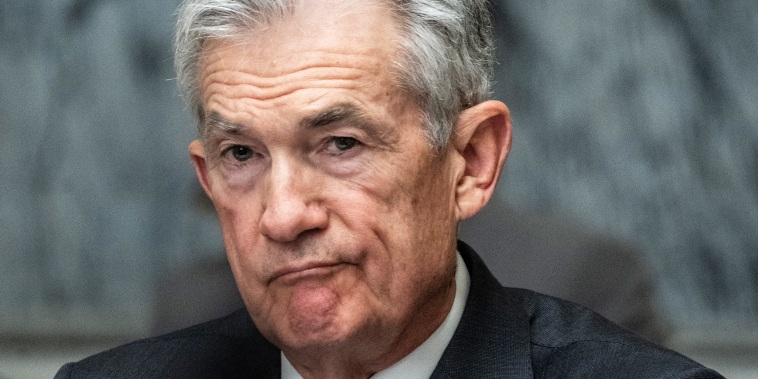Federal Reserve officials grew more concerned at their most recent meeting about inflation, with members indicating that they lacked the confidence to move forward on interest rate reductions.
Minutes from the April 30-May 1 policy meeting of the Federal Open Market Committee released Wednesday indicated apprehension from policymakers about when it would be time to ease.
The meeting followed a slew of readings that showed inflation was more stubborn than officials had expected to start 2024. The Fed targets a 2% inflation rate, and all of the indicators showed price increases running well ahead of that mark.
“Participants observed that while inflation had eased over the past year, in recent months there had been a lack of further progress toward the Committee’s 2 percent objective,” the summary said. “The recent monthly data had showed significant increases in components of both goods and services price inflation.”
The minutes also showed “various participants mentioned a willingness to tighten policy further should risks to inflation materialize in a way that such an action became appropriate.” Several Fed officials, including Chair Jerome Powell and Governor Christopher Waller, have said they doubt the next move would be a hike.
The FOMC voted unanimously at the meeting to hold its benchmark short-term borrowing rate in a range of 5.25%-5.5%, a 23-year high where it has been since July 2023.
“Participants assessed that maintaining the current target range for the federal funds rate at this meeting was supported by intermeeting data indicating continued solid economic growth,” the minutes said.
Since then, there have been some incremental signs of progress on inflation, as the consumer price index for April showed inflation running at a 3.4% annual rate, slightly below the March level. Excluding food and energy, the core CPI came in at 3.6%, the lowest since April 2021.
However, consumer surveys indicate increasing worries. For instance, the University of Michigan consumer sentiment survey showed the one-year outlook at 3.5%, the highest since November, while overall optimism slumped. A New York Fed survey showed similar results.
Stocks held in negative territory while Treasury yields were mostly higher following the minutes release.
Fed officials at the meeting noted several upside risks to inflation, particularly from geopolitical events, and noted the pressure that inflation was having on consumers, particularly those on the lower end of the wage scale. Some participants said the early year increase in inflation could have come from seasonal distortions, though others argued that the “broad-based” nature of the moves means they shouldn’t be “overly discounted.”
Committee members also expressed worry that consumers were resorting to riskier forms of financing to make ends meet as inflation pressures persist.
“Many participants noted signs that the finances of low- and moderate-income households were increasingly coming under pressure, which these participants saw as a downside risk to the outlook for consumption,” the minutes said. “They pointed to increased usage of credit cards and buy-now-pay-later services, as well as increased delinquency rates for some types of consumer loans.”
Officials were largely optimistic about growth prospects though they expected some moderation this year. They also said they anticipate inflation ultimately to return to the 2% objective but grew uncertain over how long that would take, and how much impact high rates are having on the process.
Immigration was mentioned on multiple occasions as a factor both helping spur the labor market and to sustain consumption levels.
Public remarks from central bankers since the meeting have taken on a cautionary tone.
Fed Governor Waller on Tuesday said that while he does not expect the FOMC will have to raise rates, he warned that he will need to see “several months” of good data before voting to cut.
Last week, Chair Jerome Powell expressed sentiments that weren’t quite as hawkish in tone, though he maintained that the Fed will “need to be patient and let restrictive policy do its work” as inflation holds higher.
Markets have continued to adjust their expectations for cuts this year. Futures pricing as of Wednesday afternoon after the release of the minutes indicated about a 60% chance of the first reduction still coming in September, though the outlook for a second move in December receded to only a bit better than a 50-50 coin flip chance.
Earlier this year, markets had been pricing in at lease six quarter-percentage point cuts.



